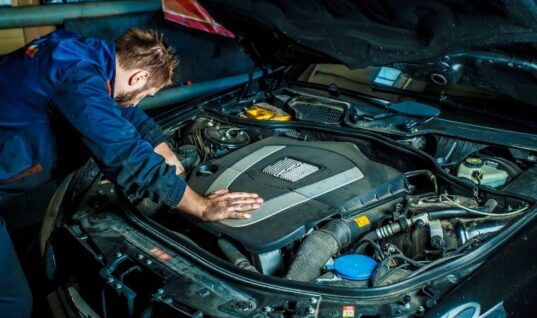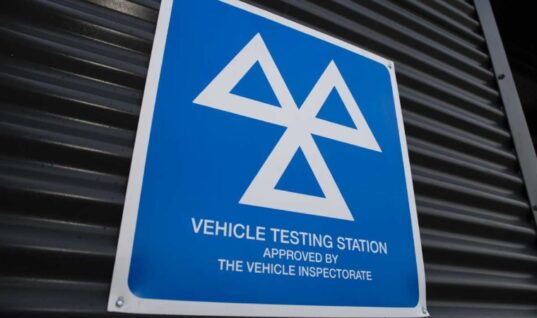
Lifelong learning is not a new concept, but is the motor trade late to the party?
Dinosaurs didn’t read, and now they’re extinct.
Many people think that they don’t have the time to undertake study, and this may be true, however, learning is not always about study.
If you have the personal drive to get out of bed in the morning and go to work, especially in the motor industry, you will be subconsciously learning new things all the time.
The difference is, that to make sufficient progress with any new skill, knowledge or understanding, you will have to put in some extra effort to expand on what you’ve learned.
As a member of several professional automotive online forums, it is encouraging to see the uptake from many individuals wanting to learn something new, and the sharing of a combined knowledge-base, but it has also highlighted gaps in some fundamental understanding.
Misinformation
It is worthwhile remembering, that although much of the help and guidance given on the internet is done in good faith, you need still need to ensure that it is reliable, and not perpetuating myths; there is a lot of misinformation out there.
Another thing with online forums is that does show that there are still those who simply want the ‘silver bullet’ solution to diagnostic issues, without the necessary processes required to solve issues systematically, often meaning they have learnt nothing in return.
Attending courses can help you step outside your normal pattern of routine, reducing the negative effects that complacency can have on our ability to keep up with an ever-changing industry.
Lifelong learning helps keep your mind sharp, and promotes curiosity; learning something new stimulates the mind to know more.
Once a new skill or deeper understanding of the subject has been gained, it will often come with a side-effect of increased confidence, and enhanced interpersonal skills.
Lifelong learning also expands career opportunities, and in the current climate, job security is not something we can take for granted.
New vehicle technology
We are at the start of the biggest technological shift in vehicle operation since the introduction of complex engine management systems around 30 years ago.
Advances in technology and increased customer demands, mean that the motor industry is in a time of rapid change.
It is worthwhile remembering that any change in an organisation or industry will affect those employed within the sector.
A successful business plans for and manages change, assessing and identifying development, easing any transition, and in turn helping to reduce obstacles.
Continuing professional development
Those who are MOT testers should now be familiar with the term continuing professional development (CPD) and the annual assessment required to maintain their tester status.
For many this has been a re-introduction to ongoing training, however, there are many others that feel they are too busy to undertake extra training, especially with a hectic work schedule when they could be earning money.
Training may not solve these issues, but it should be seen as an investment which will help you make money, rather than an unnecessary expense.
Not only can training help you keep up with emerging technology, it can improve your productivity, therefore increasing your efficiency.
Legal and regulatory requirements
There are also legal and regulatory requirements placed on the motor industry, meaning that some training is mandatory.
When it comes to legal requirements, it is possible that some organisations are breaking the law without even realising it.
This may not be done on purpose, however, not being properly aware of the regulations is not seen as an excuse.
Breach of duties under sections 2 to 6 of the health and safety at work act for offences committed on or after 12th March 2015, tried in a magistrates court, can carry an unlimited fine, imprisonment for a term not exceeding six months or both.
It is true that although many regulations and legal requirements are hard to police, it is also a true that prosecution for non-compliance will be followed up should an incident occur.
Although some training can be conducted ‘in-house’, any health and safety training should take place during working hours and must not be paid for by the employee.
Evening and weekend training
To keep up with demand, training providers will also need to change their methods of operation to ensure that they are meeting the needs of industry.
This can be done by expanding the subjects offered and extending into evenings or weekends which will allow technicians to study around their day-to-day commitments.

As a lecturer with Chichester College, I recently ran a trade event in our motor vehicle workshops to help gauge interest, and investigate the needs of local garages with regard to subjects and training requirements.
The outcome showed that the biggest areas of significance, involved both fundamental and advanced diagnosis of electrical systems, engine management and hybrid/EV training.
From this information, we are in a position to develop and offer short courses alongside our regulated qualifications, on evenings and weekends, to support regional demands.
Remember, some specialised training may not teach you anything new, but it may reinforce what you already know, or help correct mistakes in your understanding.
A previous candidate on a Master Technician course gave me a very good example of this when he said to me “I know most of the information, but you’ve helped me ‘join the dots’” (credit Sid Vickers).
It’s worthwhile bearing in mind that many colleges or training providers may be in a position to offer bespoke automotive training if enough enquiries are made.
In conclusion, lifelong learning is available to anyone who seeks it out, but those left behind may suffer a similar fate to the dinosaurs.
Share your comments below.
With a long history working in an independent garage, Graham now teaches motor vehicle technology at Chichester College. He’s a renowned author too, with ten books and three CD ROMS to his name so far, covering a range of vehicle technology topics from levels one to four. To find out more about Graham Stoakes and his automotive books, select ‘more details’ below.








Home Page › Forums › Opinion: Why the motor industry needs to embrace lifelong learning